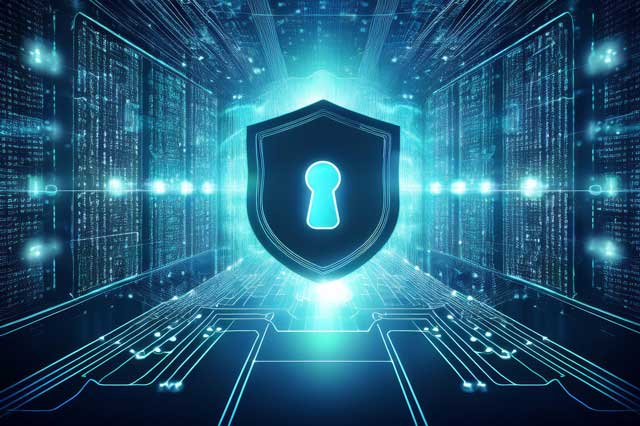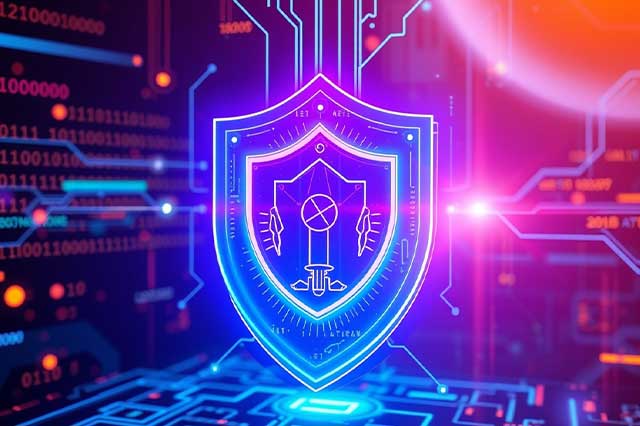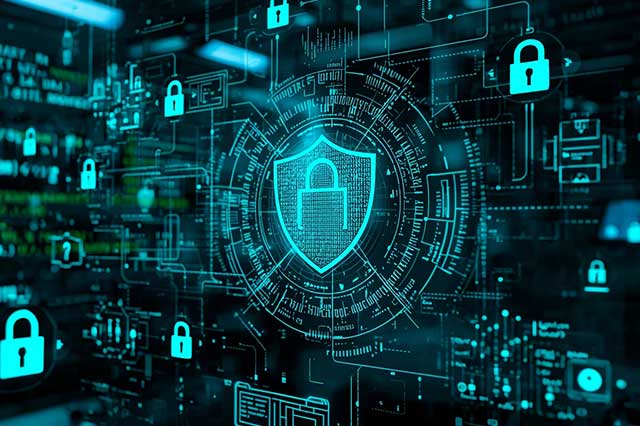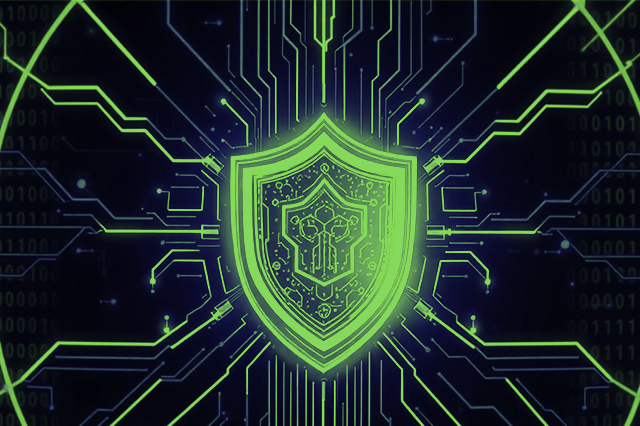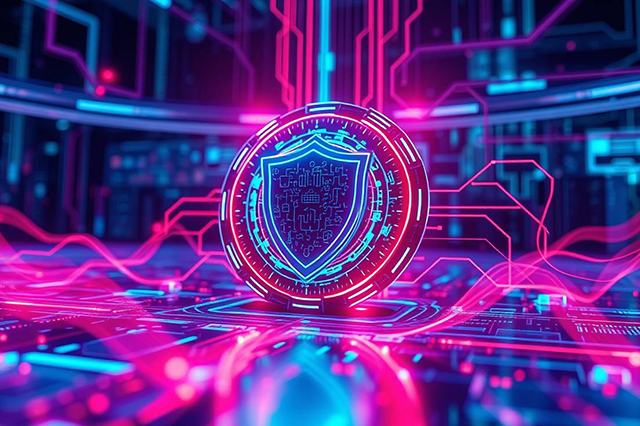Cybersecurity Vs. Ethical Hacking: The vast expanse of cybersecurity and ethical hacking continuously evolves as we enter 2026. With cyber threats getting more complex each successive day, there is a dire need for aspiring professionals to critically understand the difference between the two because each field focuses on different aspects of protecting digital assets.
This article takes you on a quick tour to analyze the distinctions between cybersecurity and ethical hacking, focusing on key subjects like their objectives, required skill sets, tools and techniques, courses, and career opportunities.
Core Definitions & Objectives
Cybersecurity can be understood as the simple task of defending a business’s data, networks, and systems against unidentified online attacks. Keeping the data safe from damage and theft is the primary goal. Furthermore, no one wants their data to fall into the wrong hands. Cybersecurity procedures guarantee the development of a strong and unbreakable defense system to protect sensitive information.
Ethical hacking, in turn, means an organization that tries to consciously break into its system to identify the weaknesses it may have. Ethical hackers must simulate life-like attacks to spot the weaknesses within the systems. In the event of a real cyberattack, this preemptive strategy is employed to safeguard data.
Also Read: Cyber Security Salary in 2025
Focus Areas & Scope
Cybersecurity professionals’ work mainly revolves around three pillars. These three pillars are incident reaction, monitoring, and prevention. Cybersecurity professionals provide security mechanisms, including firewalls, intrusion detection systems, and encryption protocols against any potential threats. A cybersecurity professional might belong to any sector requiring security from cyberattacks, from risk management to GDPR-related compliance.
On the other hand, ethical hacking professionals focus on vulnerability detection and penetration testing. Ethical hackers perform intentional and legitimate attacks to evaluate the security level of a system. Their primary focus is to identify loopholes in systems, networks, and applications that hackers might attack.
Skill Set Requirements
The skill sets involved in cybersecurity and ethical hacking are very different:
A cybersecurity professional is required to be proficient in areas like threat analysis, risk management, security architecture, and compliance standards. They should be well-familiarised with the wide range of security frameworks and have excellent fluency in implementing defensive strategies.
However, ethical hackers are required to have a thorough knowledge of coding languages (e.g., Python or JavaScript), hacking techniques, and exploitation tools. They need to think like attackers to effectively discover vulnerabilities.
Tools & Technologies Used
Each domain has its own set of distinct tools tailored to its requirements:
Some of the most common and widely used tools of cybersecurity include Firewalls (e.g., Cisco ASA), Security Information and Event Management (e.g., Splunk), Antivirus (e.g., McAfee), and Network Monitoring (e.g., Nagios). Such technologies help maintain a secure environment by identifying and addressing risks timely.
On the other hand, ethical hacking tools are more specific. For instance, Kali Linux is a widely accepted toolbox for penetration testing; Metasploit is extensively used as a framework for creating and running exploit code. Additionally, Wireshark is popular for accurately analyzing network protocols, and John the Ripper is an excellent example of a password-cracking program.
Certification & Training Differences
Here is a list of certification courses required for ethical hacking and cybersecurity.
The Cyber Security course imparts strong foundational skills like networking, operating systems, and security tools.
The Advanced Cyber Security Certification is designed for intermediate learners who require advanced knowledge to manage more complex cybersecurity risks.
The following certifications are suitable for those aspiring to be ethical hackers:
Ethical Hacker Certified (CEH): This certification teaches you the basics of programming languages, networking, cryptography, and database management.
An Ethical Hacking Certification Program: This ethical hacking course is designed to provide a more practical-based and hands-on experience in identifying vulnerabilities in systems.
Interested in E&ICT courses? Get a callback !
Name *
First Name
First
Last Name
Last
Email *
Email
Phone *
India +91
Phone Number
Please select a course *
Course
Submit
Learning Journey
Cybersecurity education places a strong emphasis on risk management, compliance, security principles, and defensive tactics to shield systems from threats and unwanted access. Hence, it focuses on broader and more abstract concepts. Studying different security technologies, regulations, and incident response procedures is usually part of this.
On the other hand, training in ethical hacking is highly specialized. It calls for technical proficiency and inventiveness to take advantage of system flaws, frequently using techniques and tools like SQL injection and phishing.
Work Environment & Responsibilities
Additionally, the work settings for ethical hackers and cybersecurity specialists differ:
Long-term organizational protection measures are frequently a part of cybersecurity roles. IT departments or specialized security teams may employ professionals to carry out audits, respond to problems, and enforce policies.
On the other hand, ethical hackers usually work on project-based tasks in which they evaluate certain apps or systems. Conducting penetration tests, reporting results, and suggesting enhancements are some of their duties.
Legal & Ethical Considerations
The regulatory frameworks governing the two domains are distinct: Cybersecurity experts are required to abide by compliance standards like GDPR or ISO 27001. They are in charge of making sure their companies abide by the laws pertaining to data protection.
Strict legal frameworks govern ethical hackers’ operations, requiring customer authorization before testing. They must ensure their behaviors are morally correct while navigating rules pertaining to unlawful access.
Client Approach & Problem-Solving
Cybersecurity professionals are required to be equipped with the latest tools and methods to protect technological systems. It is their imperative duty to update their client about the damages that can take place if methodologies and tools are not used correctly.
On the other hand, ethical hacking professionals are required to update their clients about the various weaknesses of the system and provide a holistic documentation on its improvements.
Salary & Career Opportunities
Let us find out who earns more, ethical hacker or cyber security? Here are the expected salaries in both the fields:
Depending on expertise and position, average cybersecurity wages can range from $80,000 to over $150,000 annually. Because of their strategic importance inside firms, positions such as security architect and chief information security officer (CISO) fetch lucrative compensation.
Although they depend on specialty, ethical hacking positions generally pay much better. Average yearly salaries for penetration testers fall between $70,000 and $120,000. The rising demand for vulnerability assessments has also increased the scope of freelance ethical hacking jobs.
Collaboration Between Cybersecurity and Ethical Hacking
Despite their distinctions, ethical hacking and cybersecurity work well together in contemporary cybersecurity strategies:
Cybersecurity procedures can benefit from the insightful information ethical hackers offer about the weaknesses of a system. This further facilitates organizations in fortifying their defenses against actual threats by mimicking attacks.
For example, companies such as Google maintain ethical hackers within their Vulnerability Reward Program, finding vulnerabilities proactively in their systems. The integration of offensive techniques within defensive strategies leads to a system-wide increase in security levels.
Cybersecurity Vs. Ethical Hacking Differences: Comparison Table
Aspects
Cybersecurity
Ethical Hacking
Definition
Securing systems from unknown attacks
Diagnosing vulnerabilities by testing
Aim
Prevention of attacks and improving incident response
Penetration Testing & Vulnerability Detection
Certifications Required
Cyber Security Professional Certification & Advanced Cyber Security Certification
Certified Ethical Hacker (CEH) & Ethical Hacking Certification Program
Skill Set Required
Threat Analysis & Management
Coding & Hacking
Tools
Firewalls & SIEM systems
Kali Linux & Metasploit
Learning Journey
Focus on risk management, security principles, and defensive tactics
Focus on exploiting system flaws with tools like SQL injection and phishing
Work Environment
Long-term organizational strategies
Project-based feedbacks
Legal Considerations
Following rules & regulations
Requires client’s consent & follows legal frameworks
Client Approach
Update clients on potential damages from incorrect tools/methods
Inform clients about weaknesses and provide improvement documentation
Salary
$80K – $150K+
$70K – $120K
Cyber Security vs Ethical Hacking: Which is Better?
It is immensely crucial for people considering a career path in cybersecurity or ethical hacking by 2025 to understand the differences between the two. While both jobs emphasize preventing cyber threats to digital assets, cybersecurity, and ethical hacking pursue this objective in very different ways.
So, which is better, ethical hacking or cyber security? Neither.
Cybersecurity is focused on protection systems, while ethical hacking focuses on vulnerability discovery. When deciding on a career route, aspiring professionals must keep in mind their preferences and their genuine interest in the field.
Whether they favor the more specialized concentration of ethical hacking or the more general scope of cybersecurity will have a significant impact on their career trajectory. Both areas will continue to be crucial parts of any organization’s security plan as long as cyber threats continue to change.

